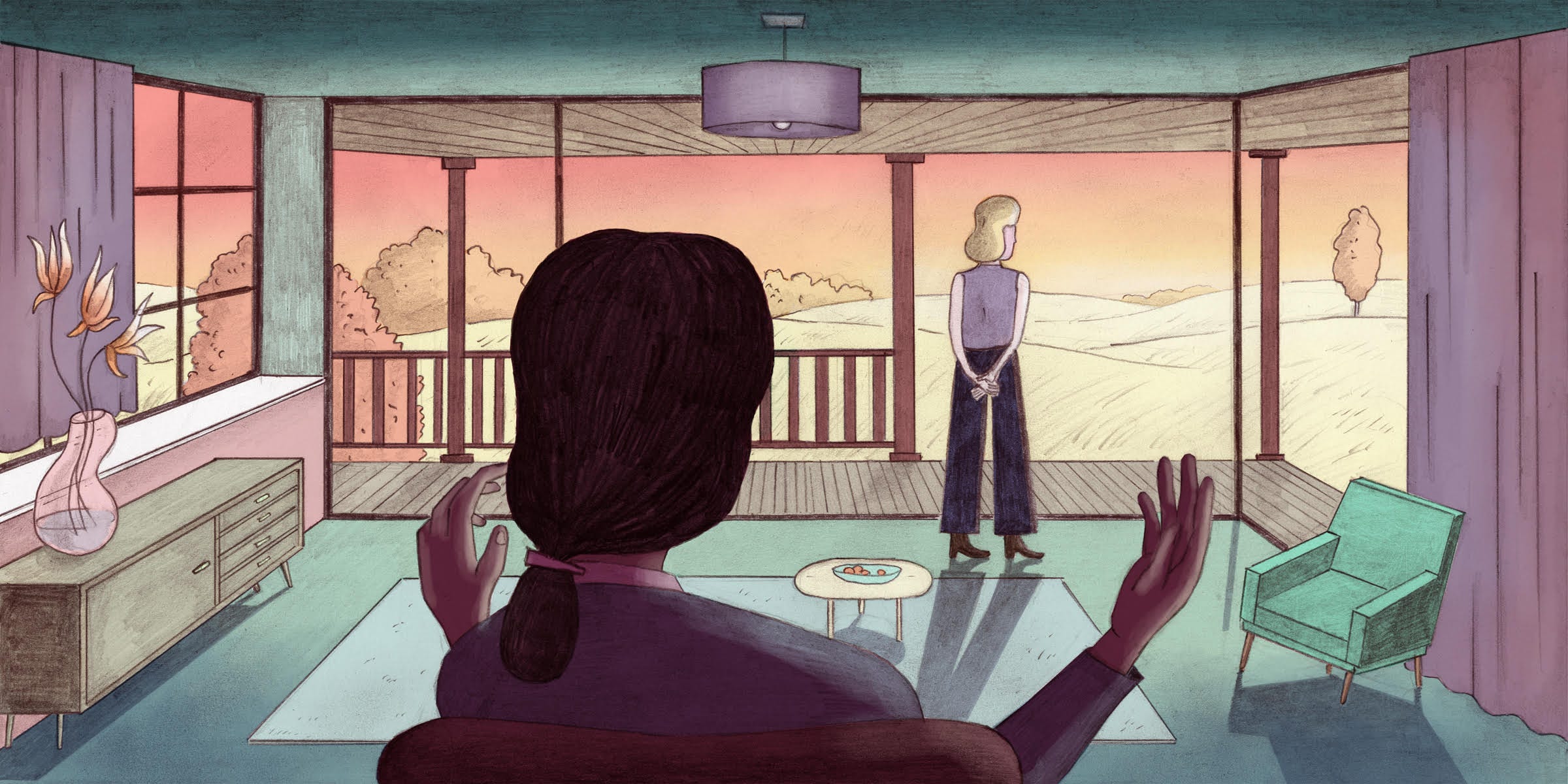
A few weeks ago, my phone rang with a call from an unfamiliar number. On the line was yet another new therapist reaching out to schedule yet another first appointment.
I was introduced to the benefits of counseling during college, where I was a psychology major. As a student, I was given 12 free therapy sessions per school year. I learned to love therapy. But I was unprepared for just how hard it would be to find a mental health professional of color in the real world.
Growing up Black taught me that strength and persistence were nonnegotiable, and I learned to internalize my issues instead of expressing them. I was bullied throughout my childhood and was the victim of consistent and unwanted sexual advances in my adolescence. My husband and I were both living in poverty when we got married.
I’ve grown and defied the odds of my youth, but that cocktail of experiences has left me with a lot of residual anxiety and occasionally depression. Sometimes I feel like I’m one fruit short of a basket case.
Today I’m a military spouse and one of only a few people of color living in an almost exclusively conservative, white area of rural America. I’ve rotated through eight different therapists over the last six years, trying to find someone who can counsel me. When the new therapist called, I felt hope and dread. I believe in therapy, and I want it, but several bad experiences have left me skeptical.
 Seeing a white counselor comes with a lot of anxiety. When I was en route to my first session with the new therapist, I saw a car covered in Donald Trump supporter bumper stickers in the parking lot, and I prayed it did not belong to my therapist. Living in a red state means coming to terms with the fact that it’s a genuine — if not likely — possibility that I could end up entrusting my mental health to someone who supports Trump. Seeking help makes me feel vulnerable enough, but the fear that my therapist will deny my reality is terrifying.
Seeing a white counselor comes with a lot of anxiety. When I was en route to my first session with the new therapist, I saw a car covered in Donald Trump supporter bumper stickers in the parking lot, and I prayed it did not belong to my therapist. Living in a red state means coming to terms with the fact that it’s a genuine — if not likely — possibility that I could end up entrusting my mental health to someone who supports Trump. Seeking help makes me feel vulnerable enough, but the fear that my therapist will deny my reality is terrifying.
I’ve tried using mental health care directories to locate therapists in my area who understand the experiences of people of color. Unfortunately, all of those searches returned white faces. I’ve asked around in my community but with minimal success. The closest my husband and I have gotten to finding someone who understands us is our marriage counselor, who is Hispanic. When we attend sessions with him, we don’t need to translate our experiences. He knows what we’re up against as a Black married couple in rural America.
It’s hard to feel supported while sitting on a couch across from a white person requesting that I please explain why I’m afraid to let my son play with other kids in the area.
The lack of diversity among mental health care providers furthers stereotypes, makes trust more challenging, and leaves many of us feeling alienated. Only about 4% of mental health professionals in the United States are Black; the figures are similar for Asian and Hispanic/Latino professionals.
I’m among the roughly 25% of Black Americans who seek mental health assistance, compared with 40% of white people. Lack of access, cultural myths, and financial issues make some Black people less inclined to seek mental health care. But it’s also important to acknowledge the role of bias in mental health services.
Mental health is one of many areas of medicine that has a long history of negatively affecting and downright misperceiving people who look like me. Research suggests that Black Americans are substantially more likely to be diagnosed as schizophrenic compared with white people. Recent studies have found that Black people may express depression differently than other populations and that diagnostic methods should be made with cultural differences in mind.
It’s for these reasons that living with anxiety — on top of the daily worries about being Black in America — can turn my mind into a prison. As a way to cope, I’ve learned to prioritize speaking up with therapists and mental health counselors about the role my race plays in my daily life and perspectives. It can be an awkward conversation, but it’s inevitably necessary.
Time and again, I’ve given white counselors the benefit of the doubt only to be let down at their lack of understanding. It’s hard to feel supported while sitting on a couch across from a white person requesting that I please explain why I’m afraid to let my son play with other kids in the area. I also feel a great deal of hesitance at their ability to understand the complexities of Black marriage and the ways Black men and women interact.
 Over the past few years, I’ve discovered resources that can help people of color looking for mental health care. My personal favorite is the Therapy for Black Girls podcast, which encourages the mental wellness of Black women and girls. These “for us by us” initiatives make me feel heard. There are also efforts from mental health professionals of color to embrace telemedicine services, which can increase access to mental health care for people like me who live in rural areas with few if any resources.
Over the past few years, I’ve discovered resources that can help people of color looking for mental health care. My personal favorite is the Therapy for Black Girls podcast, which encourages the mental wellness of Black women and girls. These “for us by us” initiatives make me feel heard. There are also efforts from mental health professionals of color to embrace telemedicine services, which can increase access to mental health care for people like me who live in rural areas with few if any resources.
The relationship I have with my new therapist is good so far. Like many therapists before her, she has no issue reflecting my struggles as a woman back to me. But I know I’m withholding a significant aspect of my identity by not delving into the nuances of my life as a Black woman. My therapist cannot personally understand womanhood through a racialized lens — and it affects how much I trust her.
Sometimes I dream that I’ve left the Midwest and that I live in a city with access to multicultural centers and mental health professionals of color who I can call and make me feel safe. But I don’t live in that world. I’m here, where white women are my best hope at sanity. And I hope — for the first time — they don’t let me down.
Written by Rochaun Meadows-Fernandez who is a diversity content specialist whose work can be seen in The Washington Post, InStyle, The Guardian, and many other places.
